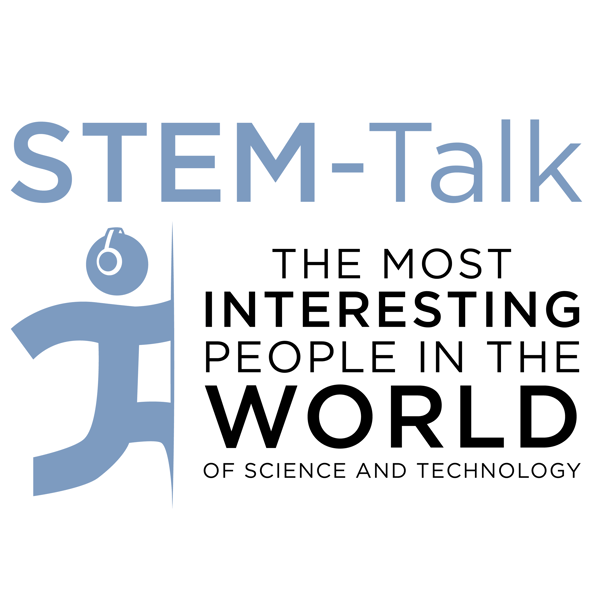Episode 182: Michael Schmidt discusses the application of precision medicine to human spaceflight
STEM-Talk
Dawn Kernagis and Ken Ford
4.6 • 694 Ratings
🗓️ 2 June 2025
⏱️ 75 minutes
🧾️ Download transcript
Summary
Transcript
Click on a timestamp to play from that location
| 0:00.0 | Welcome to STEM Talk. |
| 0:01.0 | Stem Talk. |
| 0:02.0 | Stem Talk. |
| 0:03.0 | Stem Talk. |
| 0:04.0 | Stem Talk, where we introduce you to fascinating people who passionately inhabit the scientific and technical frontiers of our society. |
| 0:15.0 | Hi, I'm your host, Don Cornegas, and joining me to introduce today's podcast as the man behind the curtain, Dr. Ken Ford, |
| 0:22.5 | HMC's director and chairman of the double secret selection committee that selects all the guests who appear on STEM Talk. |
| 0:27.9 | Hi, Don, great to be here. |
| 0:30.0 | So today we have Dr. Michael Schmidt, the founder, CEO, and chief scientific officer of Severus Aerospace. |
| 0:37.3 | It's a company focused on assessments |
| 0:39.0 | and solutions applied to humans in space and other extreme environments on Earth. |
| 0:43.3 | Michael is known for his work in helping to pioneer the field of precision medicine. |
| 0:47.3 | He uses molecular analytics coupled with physiologic and behavioral assessments |
| 0:52.3 | to facilitate human performance and resilience on Earth, |
| 0:56.1 | as well as in extreme environments such as space. And his work covers a spectrum from NASA, the NFL, |
| 1:02.5 | the NBA, U.S. Olympic teams, Nike, SpaceX, Axiom Space, NASCAR, Special Operations, |
| 1:08.2 | the Naval Submarine Medical Research Lab, Mayo Clinic, and many others. |
| 1:11.9 | And Michael is also a professor of aerospace medicine at the University of Central Florida |
| 1:15.6 | College of Medicine, which is one of the few programs in the U.S. that offers a medical |
| 1:19.1 | residency in aerospace medicine. |
| 1:21.6 | Our conversation with Michael was sufficiently fascinating and wide-ranging that we split |
| 1:27.0 | the interview into two parts. |
... |
Please login to see the full transcript.
Disclaimer: The podcast and artwork embedded on this page are from Dawn Kernagis and Ken Ford, and are the property of its owner and not affiliated with or endorsed by Tapesearch.
Generated transcripts are the property of Dawn Kernagis and Ken Ford and are distributed freely under the Fair Use doctrine. Transcripts generated by Tapesearch are not guaranteed to be accurate.
Copyright © Tapesearch 2025.

